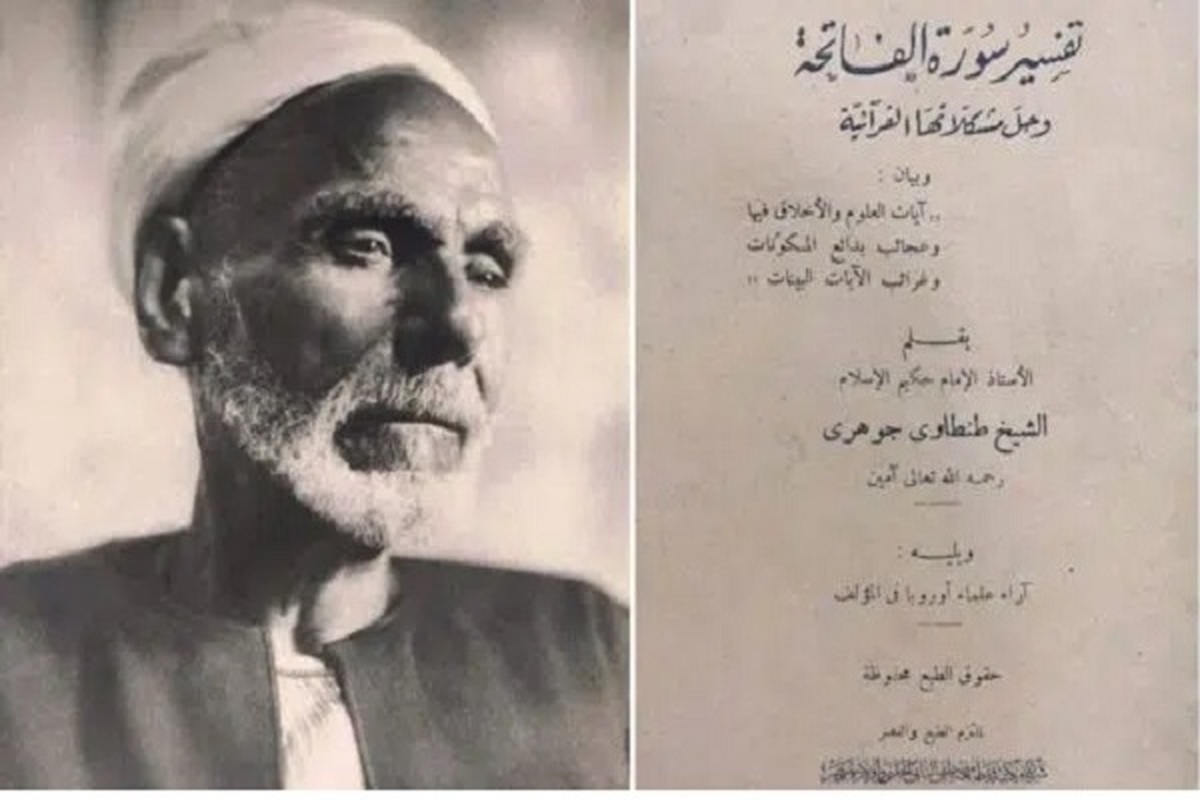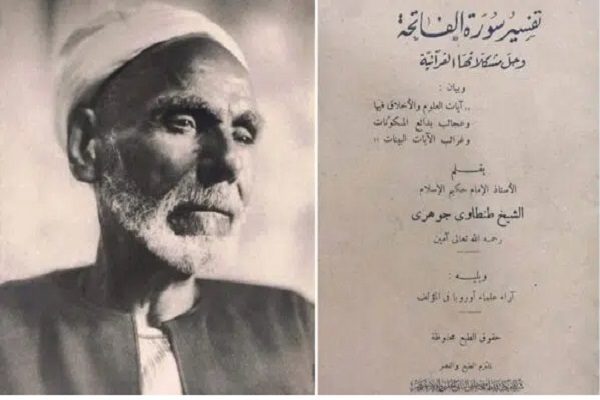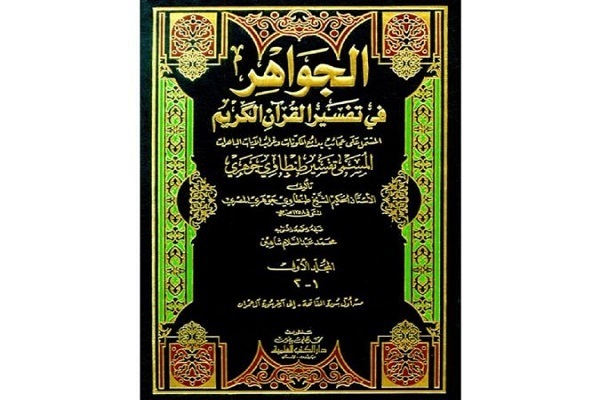Sheikh Tantawi’s Al-Jawahir A Revolution in Quran Interpretation


In his Quran exegesis, he explains about rulings needed by Muslims and Quranic teachings on ethics.
The most important feature of this work, however, is its scientific approach and comparing some 750 verses of the Holy Quran with discoveries in natural sciences.
Tantawi was born in 1861 in Kafr Awazallah village in Egypt’s Sharqia Governorate.
He studied at Al-Aazhar Islamic Center for three years but then had to leave the center due to his father’s illness.
He later studied at Egypt’s Dar al-Ulum (house of sciences) where modern sciences were taught and later became the first instructor of Western philosophy there.
It is said that after seeing a train for the first time, he started wondering how mankind has managed to make such an invention and why Muslims have failed to reach such a level of science.
He studied about history, philosophy and scientific progress in the West and the history of sciences like medicine, pharmacology and astronomy.
Read More:
The main work by Tantawi is Al-Jawahir fi Tafsir al-Quran al-Karim that he wrote in 26 volumes.

In this book, he has benefited from Quran exegeses written before and in some parts of it he used the traditional approach to Quran interpretation.
But his main innovative and revolutionary step was making references to European scientific discoveries and developments in psychology and sociology in interpretation of the words, sentences and verses of the Quran.
The effects of such a revolution is still tangible with some saying it has shaken the scholarly and Fiqhi center sin Egypt and other Muslim world countries.

Tantawi said he chose this approach to raise awareness and encourage Muslim youths to learn sciences such as astronomy, medicine, physics, geology, and other empirical sciences.
He notes that the number of verses of the Quran that talk about acts of worship is just 150 whereas there are some 750 verses that invite mankind to contemplate and reflect on the world and nature.
Read More:
In general, his interpretation has several main themes: discussing Fiqhi (jurisprudential) issues in each verse, issues related to paradise and hell, good and devil, historical and ethical observations, and studying the verses with a look at natural and empirical sciences.
4211837



